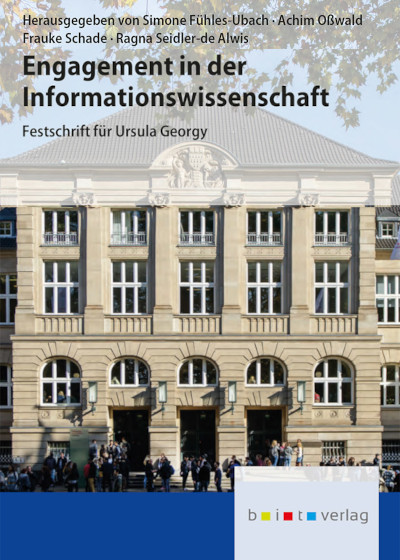 WEITERE NEWS
WEITERE NEWS
- Alle Schriftenreihen von Mohr Siebeck in Scopus aufgenommen
- Mission All: zdi.NRW zeigt, wie Mondmissionen, KI und Nachhaltigkeit Anforderungen an MINT-Kompetenzen prägen
- Start of funding for the European Holocaust Research Infrastructure in Germany (EHRI-DE)
- Unterstützung für Forschungsdatengesetz
- Elsevier and Jisc agree three-year read and publish agreement for UK institutions
- Wie das Web lernt, sich besser zu schützen
- Künstliche Kokons und kollektive Konstruktionen: Kunstprojekte bereichern Leopoldina-Jahresversammlung
- Neue „SDG-Partnerschaften“ ausgewählt: DAAD stärkt internationale Hochschulkooperationen für nachhaltige Entwicklung

Aktuelles aus
L
ibrary
Essentials
In der Ausgabe
- Soziale Medien und Aufmerksamkeitsentwicklung bei Kindern: Neue Langzeitdaten zur ADHS-Risikodiskussion
- Repositorien im Wandel: Analyse zentraler Einflussfaktoren für die nächsten Jahre
- Wie inklusiv Sammlungen in Bibliotheken und Archiven wirklich sind
- Synergien von KI-Chat und Suche:
Wie unterschiedliche Altersgruppen
Information Retrieval neu gestalten - Kulturerbe-Daten im Zeitalter der KI:
Ein neues Zugangsmodell für Institutionen - Jugendliche, soziale Medien und KI-Chatbots: Digitale Nutzungsrealitäten 2025
- Buchclubs als unterschätzte Brücke zwischen Campusleben und Bibliothek: Neue Impulse aus US-Hochschulbibliotheken
- AI Librarian in Japan
- Altersgrenzen für soziale Medien:
Europas nächste Regulierungsdebatte - KI und Journalismus:
Neue Machtverschiebungen
im Markt für Nachrichteninhalte - Print ist tot, es lebe Print!

fachbuchjournal























































